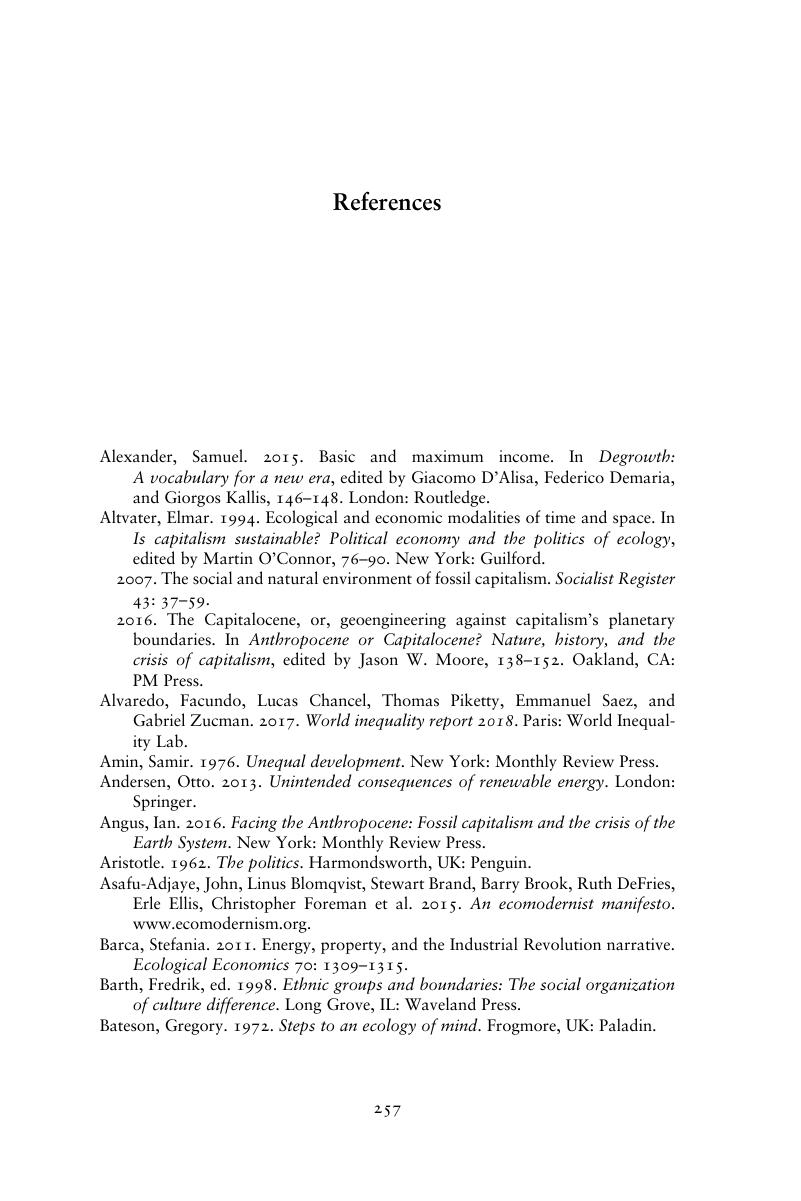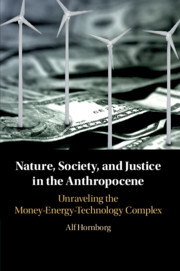Book contents
- Nature, Society, and Justice in the Anthropocene
- New Directions in Sustainability and Society
- Nature, Society, and Justice in the Anthropocene
- Copyright page
- Reviews
- Dedication
- Contents
- Figures
- Acknowledgments
- Introduction
- 1 Rethinking Economy and Technology
- 2 The Anthropocene Challenge to Our Worldview
- 3 Producing and Obscuring Global Injustices
- 4 The Money Game
- 5 Anticipating Degrowth
- 6 The Ontology of Technology
- 7 Energy Technologies as Time–Space Appropriation
- 8 Capitalism, Energy, and the Logic of Money
- 9 Unequal Exchange and Economic Value
- 10 Subjects versus Objects
- 11 Anthropocene Confusions
- 12 Animism, Relationism, and the Ontological Turn
- 13 Conclusions and Possibilities
- Afterword
- References
- Names Index
- Subject Index
- References
References
Published online by Cambridge University Press: 24 June 2019
- Nature, Society, and Justice in the Anthropocene
- New Directions in Sustainability and Society
- Nature, Society, and Justice in the Anthropocene
- Copyright page
- Reviews
- Dedication
- Contents
- Figures
- Acknowledgments
- Introduction
- 1 Rethinking Economy and Technology
- 2 The Anthropocene Challenge to Our Worldview
- 3 Producing and Obscuring Global Injustices
- 4 The Money Game
- 5 Anticipating Degrowth
- 6 The Ontology of Technology
- 7 Energy Technologies as Time–Space Appropriation
- 8 Capitalism, Energy, and the Logic of Money
- 9 Unequal Exchange and Economic Value
- 10 Subjects versus Objects
- 11 Anthropocene Confusions
- 12 Animism, Relationism, and the Ontological Turn
- 13 Conclusions and Possibilities
- Afterword
- References
- Names Index
- Subject Index
- References
Summary

- Type
- Chapter
- Information
- Nature, Society, and Justice in the AnthropoceneUnraveling the Money-Energy-Technology Complex, pp. 257 - 274Publisher: Cambridge University PressPrint publication year: 2019

